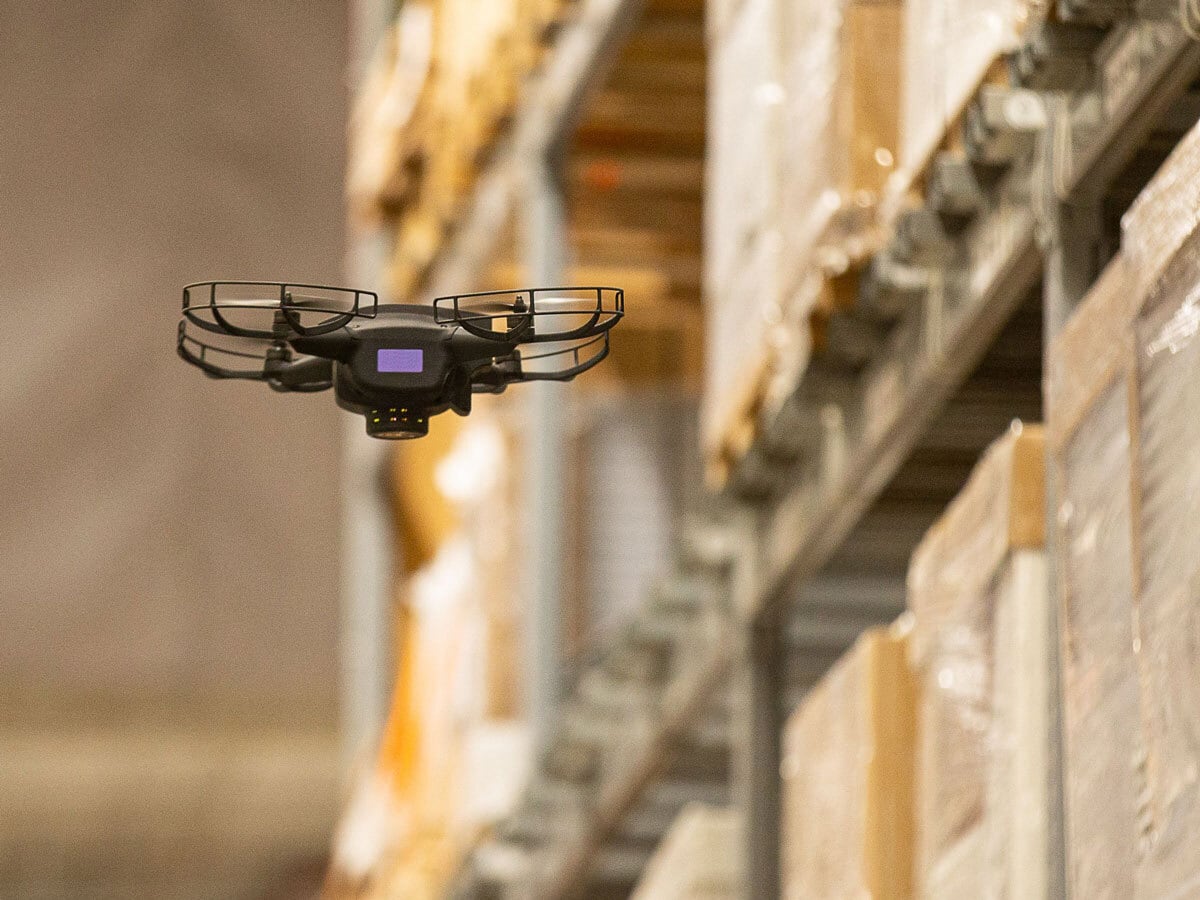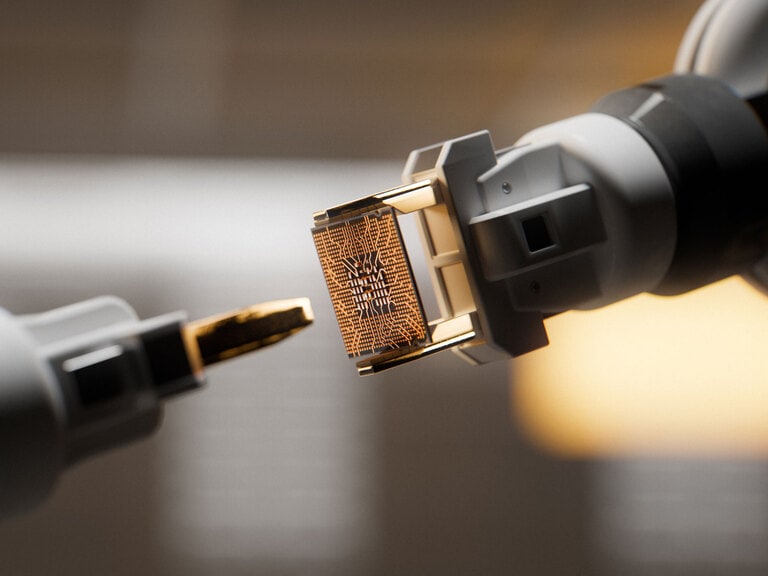The drone technology industry is on course to quadruple in size by the year 2032, and its relevance across a wide range of sectors and industries means investment into the theme gives exposure to many others. Companies like Kratos and Deere & Co are among the pioneers in the field, partly thanks to partnerships with innovative start-ups like Volocopter.
- Drone technology is impacting disparate industries.
- Kratos saw its drone revenue fall in Q1 2023.
- How to invest in drones: the ARK Autonomous Tech & Robotics ETF offers exposure to stocks within the drones sector, and is up 35% year-to-date.
Drone technology is bringing a wide array of sectors to new heights. This is a ‘killing all birds with one stone’ theme, as exposure to drone companies offers indirect exposure to a range of industries in which the technology is applied.
That range is vast: everything from agriculture to warfare, and from space exploration to transport, is being given a fresh perspective by unmanned aerial vehicles (UAVs).
The sector was worth $30bn in 2022, according to a June report by market research and strategy consulting firm Global Market Insights. That figure could more than quadruple within a decade; the report anticipates that the industry will be worth $125bn by 2032, growing at 15% per year between 2023 and 2032.
One of the key sub-themes for the drones investment theme is defence. Research from MarketsAndMarkets estimates that the military drone market will reach $17bn by 2027, at a CAGR of 7.3%.
As with anything that involves automation, there is substantial convergence between the drones theme and both artificial intelligence (AI) and robotics.
The sub-themes of defence and AI were recently thought to have converged, when a viral report seemed to suggest a military drone powered by AI had killed its human operator.
The US Air Force subsequently clarified that Colonel Tucker Hamilton, its chief of AI test and operations, had misspoken at the conference where he described the event, the experiment having been a simulation or “thought experiment” rather than something that had really happened. However, Hamilton later acknowledged that the hypothetical outcome was a “plausible outcome”, highlighting the promethean potential of the crossovers between these technologies.
Farmers, flying cars and firefighting
Agriculture is another industry being revolutionised by drone technology. Deere & Co’s [DE] partnership with private drone company Volocopter brought large drones to agriculture in 2019, and innovation within the field of farming continues. Israeli start-up Tevel, for example, uses drones assisted by AI and machine vision to pick fruits in orchards.
Volocopter itself successfully raised $182m funding in its November 2022 Series E, with testing of its two-seater VoloCity air taxi already underway. The company’s partnership with NEOM bore fruit on 28 June, when Saudi Arabia’s first ever electric air taxi flight took off.
VoloCity’s commercial launch in Paris is slated for summer 2024. Volocopter has been working closely with French regulatory authorities in order to lay the groundwork for the launch, which it believes will solve the public transport challenges the city faces. A blog post from the company stated: “if we can make it in a city of this magnitude, launches in other target cities should follow like an expertly assembled domino line”.
Elsewhere, advances in drone technology have the potential to save lives. On 26 June, news broke of a prototype drone, created by Imperial College London and Empa engineers, that could withstand temperatures of 200°C for ten minutes — meaning it could potentially be sent into burning buildings and wildfires ahead of emergency responders to provide preliminary mapping of the environment.
While fires burn at temperatures well in excess of 200°C, the researchers say the prototype, dubbed FireDrone, represents a first step towards drones of the future that will be able to withstand truly extreme temperatures.
Kratos sees drone revenue drop
US defence manufacturer Kratos [KTOS] is a leading producer of military drones. Its CEO Eric DeMarco told an investor call in May that he believes the firm is well ahead of any potential competitors, saying that “if a competitor elected to enter this class of affordable tactical jet drones, they are at least three to four years away from first flight, at who knows what cost to the customer”.
Kratos’s XQ-58 Valkyrie, however, is already airborne, and the company has contracts with the US Air Force and Navy to supply drones. The contract with the Navy was announced on 30 December 2022, and is worth $15.5m for two XQ-58A Valkyrie UAV systems.
Despite this, however, Kratos’s revenue from unmanned systems sales fell 8.75% year-over-year in the first quarter of 2023, to $48m, with the division delivering an operating loss of $0.6m. The revenue decline was attributed to “reduced tactical drone-related activity”, while the losses reflected “a less favourable mix of revenues and the impact of reduced volume”.
Portfolios, partnerships and consolidation
According to Global Market Insights, the primary strategies that drone firms are using to expand are the broadening of product portfolios and technical partnerships.
Partnerships such as that between Volocopter and Deere & Co, or the drug delivery partnership announced on 28 June between Harbin-owned [600664.SS] health company GNC and delivery and logistics firm Zipline, highlight how drone technology can penetrate new markets and give rise to new products.
Additionally, the industry could see consolidation over coming years. Mike Madsen, President and CEO of Honeywell Aerospace [HON], a producer of urban air mobility products, told Reuters this month that “we’re going to see acquisition by larger players of some of these companies”, adding that “the best ideas will survive”.
Honeywell has been putting Madsen’s words into practice, acquiring turbomachinery control and optimisation provider Compressor Controls on 26 April.
Space to grow
Drone technology is testing new frontiers in its potential use cases. The rovers that NASA has sent to map the surface of Mars are, essentially, drones. The Ingenuity helicopter that first flew over Mars on 19 April 2021 is even more directly recognisable as a drone.
Drones may not only have the power to further space exploration and clear debris such as disused satellites, but also to study the earth itself from the outside.
“Drones are also being employed to study Earth’s atmosphere and monitor climate change,” wrote the TS2 Space board president Marcin Frąckiewicz on the company’s blog. “High-altitude drones can collect data on atmospheric conditions, such as temperature, humidity, and air pressure, which can be used to improve weather forecasting and climate models.”
How to invest in drone stocks
ETFs, or exchange-traded funds, offer an economical and diversified way to invest in a variety of stocks within a particular theme.
Fund in focus: the ARK Autonomous Technology & Robotics ETF
The ARK Autonomous Tech & Robotics ETF [ARKQ] is not a pure-play drone ETF, but since the closure of the AdvisorShares Drone Technology ETF on 23 June, it offers investors the best means of investing in the drone space via an ETF.
ARKQ is an actively managed ETF that invests into companies involved in autonomous transportation, robotics and automation, 3D printing, energy storage and space exploration — all of which have significant overlap with the drones theme.
ARKQ’s top holdings as of 29 June include Kratos and Deere & Co as the third- and eighth-biggest holdings, at respective weightings of 7.64% and 3.61%. Tesla [TSLA] and UiPath [PATH] are the top two holdings, with weightings of 14.59% and 8.25%. ARKQ is up 35.2% year-to-date.
Continue reading for FREE
- Includes free newsletter updates, unsubscribe anytime. Privacy policy





